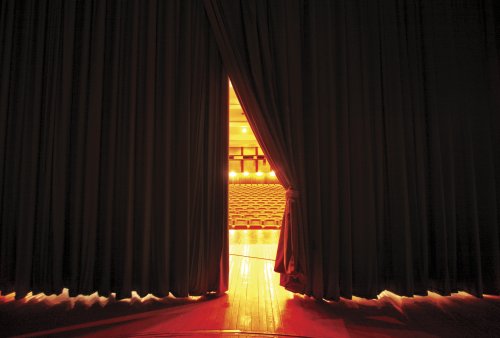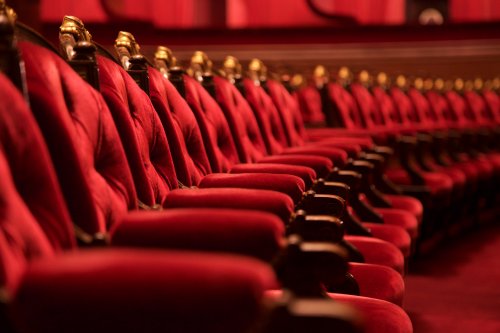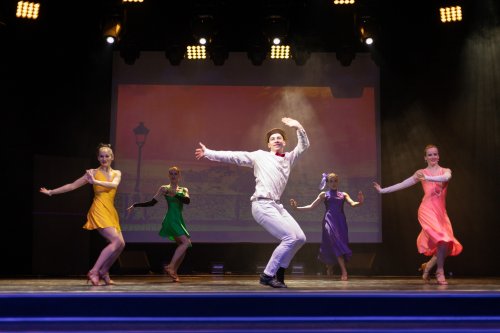Post-Pandemic State of the Arts 2023
Financial backers need to get behind small theaters. Producers need to pay artists enough to survive commuting distance from rehearsals and performances.
By Diana Combs

In New York City, when we were only halfway through the pandemic, locals were clamoring to get their culture back. One of the things New Yorkers love about being here is the endless stream of live entertainment: music, theater, musicals, cabaret – you name it!
However, while some changes have occurred in our culture that prevent a return to normalcy for the audience, there’s an unappealing sameness for artists. First, according to producers Cyndy Marion (of the White Horse Theatre Company) and Thomas Gordon (of the Gene Frankel Theatre and The Onomatopoeia Theatre Company), the audience level is not yet back to what it was pre-pandemic. Audiences have not wholly learned to trust shows to stay open, because the pandemic caused so many closures. In addition, according to audience experience, the services that sell tickets for theaters charge a lot more than before, and sometimes locals feel forced to buy directly from the theater. Tourists are unable to do this.
Many Broadway shows are also exorbitantly expensive. While smaller productions such as Off Broadway or Off Off Broadway used to be a comfortable option, producers such as Cyndy and Thomas are finding it more difficult to find financial backers. They are also struggling to rebuild audiences that they had before the pandemic and build up new ones. Finally, they still suffer closures when an artist gets sick. According to an unnamed film producer, a similar situation arose for artistic films – many film houses that used to show such films closed right before or during the pandemic. For example, while the Paris Theater is still open, the Lincoln Plazas Cinemas that used to sit on 63rd and Broadway has closed. According to several artists, a further challenge is that the home entertainment industry that boomed during the pandemic is now stiff competition for any live entertainment or art film houses.

As audiences reacclimate to normalcy in the theatrical scene, producers and financial backers want to ensure that the return is comfortable and worth the trip. The artists’ perception is that this is being addressed with big and familiar musicals with known performers are on Broadway and at other well-known venues. Successful solo artists such as David Sabella are attuned to audience mood and a need for lightness after the nation has been through political division, violent racism, and a pandemic. Based on the available options, it appears that what’s missing from the financial backers’ viewpoint is the financial recession that we’re in, and the number of layoffs. There’s not much feeling that there’s plenty of cash to spend, especially among the artists they’re hiring to entertain.
All the artists who perform in New York City need to live in commuting distance; however, New York is commonly known as a very expensive place to live. Since the pandemic, the cost of supermarket and restaurant food is complained about on a regular basis. Although the rent prices sank during the pandemic, they have shot back up now that New York has reopened. In addition, childcare is very expensive. According to anonymous actors and musical orchestral members, artists are not allowed to bring children to auditions and rehearsals, even though the theaters have plenty of space. While wages appear to be high for Broadway artists, these are wages for big productions. Moreover, artists take a chance that a show will cancel, and actors also have manager and union fees to pay on top of all their other expenses. Mostly, though, many actors in New York are not working on Broadway! Even now, Equity is struggling to attain a reasonable salary for actors.

According to several sources, even before the pandemic, during union negotiations, a producer complained that some artists can afford to buy a home. What this speaks to is an old-fashioned notion that artists are a dime a dozen, and they are willing to suffer for their art. Financial backers and producers need to show the same compassion for artists that they have for the audience. Artists are skilled professionals that have trained for their role like so many other experts. We don’t ask other specialists to have a second job that magically accepts a change in working hours to accommodate interviews. We also don’t assume that other professionals love their job so much that they’re willing to be underpaid. At the same time, we expect to see real talent on the stage. If we don’t, we talk about it. All artists need to be treated as talented and skilled professionals who deserve wages that pay for living in the New York City area.
It appears that New York City really needs suitable financial support for smaller productions so that New Yorkers can afford more live entertainment. This time around, learning from the pandemic and paying for understudies would ensure that productions stay open. According to sources, both actors and producers think that understudies are key for staying open. It would build audience trust and ensure that artists know they can take a sick day rather than perform when ill and infect others. At the same time, the smaller productions need to determine who is their audience and what they want to see. Once they understand their audience and demonstrate an ability to entertain them, they will also receive more financial support. Once this is achieved, they need to determine how they can produce the right sized shows so that each artist is paid what he or she deserves, rather than assuming someone will suffer for the art.






Leave a comment